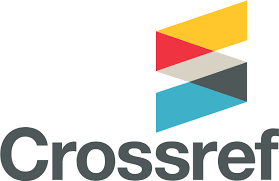CfP: Call for papers for Per Aspera ad Astra 2025/2 - Collections in Education
“Per Aspera ad Astra, Publications on the Cultural and University History” of the University of Pécs is inviting contributions to its issue “Collection in Education” from researchers in the field of social and cultural history, history of education and history of science.
Collections in Education
The use of objects and collections to support teaching has a long tradition in the history of education. In the beginning, these objects were collected or made by teachers, but by the 19th century, they were being produced or sold by professionals.
By the 20th century, with the development of science, technology, and teaching methods, the original illustrative function of the objects and collections previously collected in educational institutions was transformed, and most of them fell into disuse as the knowledge they conveyed became obsolete. Some of them have remained within the walls of the collecting institution, either as special collections of museum value or gathering dust in the storerooms, while others have been transferred to museums with the appropriate spheres of collection.
However, some of these collections are still used in education today in a slightly different way from the original. On the one hand, they still link the phenomenon to be learned to direct experience, but now they rather have to be treated in the context of the history of science and technology. While the collections were originally a tool for school education, they are now reused in out-of-school learning spaces in the form of guided tours or museum education.
The collections also offer excellent opportunities for networking both within and beyond the host community. If the institution makes the collection accessible to the general public, this will contribute to the social integration of the institution. This could be the case for museum collections offering programmes for primary and secondary schools, for community collections strengthening local ties, or for university collections supporting the third mission of the universities.
The thematic issue "Collections in Education" invites contributions that introduce state, city, university, or school collections, explore their history, analyse their use in teaching and in wider education, and discuss their current function.
We welcome both analytical studies and descriptive articles on the topic, which may raise some relevant questions:
- How were the collections created? What is their function within the institution? What was the concept behind the collections and how was the material organised?
- How do the collections support scholarly research?
- How do the collections facilitate cooperation between different institutions (e.g. university collections for the promotion of science in secondary schools)?
- How can they increase the visibility of scientific discourse by supporting knowledge transfer and participation of the wider public?
- What activities do they undertake to promote scientific knowledge? Which social groups do they address?
- How can the collections be used for current and future research and education?
The deadline for submitting abstracts of 1500-2000 characters is 28 Februar 2025, and the papers to be published in the journal will be selected on the basis of the abstracts submitted. Authors will be notified of acceptance by 15 March.
Deadline for submission of papers: 30 June 2025.
Anticipated date of publication: 30 November 2025.
Per Aspera ad Astra operates in an open access format, making its publications available free of charge. Studies published in the journal are assigned a DOI (Digital Object Identifier).
Contact: dezso.krisztina@lib.pte.hu










